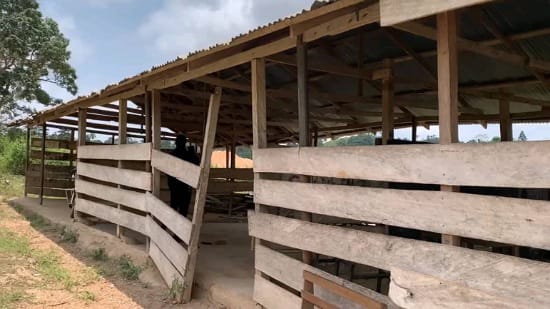Manso Adwumamu, a community nestled within the Amansie West District, faces a critical juncture in its development trajectory. The community’s leadership, spearheaded by Nana Yaw Asubonteng, the Odikro, has issued an urgent plea to the government and relevant stakeholders for crucial interventions in education and healthcare. The dire state of infrastructure, particularly in education, has reached a tipping point, threatening the future prospects of the community’s children. The existing educational facilities are woefully inadequate, creating an environment that is both discouraging and unacceptable for students and teachers alike. This inadequacy manifests in overcrowded classrooms, a scarcity of essential learning resources, and a general lack of conducive learning spaces. The consequences of this neglect are far-reaching, impacting not only the quality of education but also the overall well-being of the community.
The shortage of classroom blocks is a significant impediment to effective learning. Overcrowding makes it challenging for teachers to provide individualized attention to students, hindering their ability to address specific learning needs and foster academic growth. Moreover, the lack of space creates a cramped and uncomfortable learning environment, impacting student concentration and engagement. The scarcity of essential learning resources further compounds the problem. Without access to textbooks, libraries, and other vital materials, students are deprived of the tools necessary to succeed academically. This lack of resources not only limits their educational opportunities but also perpetuates a cycle of disadvantage, hindering their ability to compete with their peers in more privileged communities.
The impact of these infrastructural deficiencies extends beyond the students, significantly affecting the morale and retention of teachers. Many qualified teachers, faced with these challenging conditions, seek transfers to schools with better facilities and resources. This constant turnover of teachers disrupts the continuity of learning and deprives students of consistent mentorship and guidance. The absence of experienced and dedicated educators further undermines the quality of education, exacerbating the already existing challenges faced by the community’s students. The situation is further aggravated by the absence of a local health clinic, highlighting the community’s vulnerability to health challenges and limited access to basic healthcare services.
The Odikro’s appeal underscores the urgent need for intervention to avert a looming educational crisis. Without immediate action, the future of the children in Manso Adwumamu hangs in the balance. Their potential remains untapped, and their opportunities for a brighter future are severely limited. The community’s leadership recognizes that education is the cornerstone of development and that investing in education is investing in the future of the community. They have thus made a passionate plea for the government and relevant stakeholders to prioritize the construction of additional classroom blocks, provision of essential learning resources, and recruitment and retention of qualified teachers.
Reinforcing the Odikro’s call for action, Hon. Mark Asamoah, the Assembly Member for the area, along with local teachers, has echoed the urgency of the situation. They advocate for the construction of a modern classroom block, emphasizing the importance of creating a safe and conducive learning environment. Such an investment, they argue, would not only improve academic outcomes but also attract and retain skilled teachers, thus securing the long-term development of Manso Adwumamu. The community’s plea highlights the crucial role of government and non-governmental organizations (NGOs) in addressing the educational and healthcare disparities faced by marginalized communities.
The situation in Manso Adwumamu serves as a microcosm of the broader challenges facing many rural communities in Ghana. The lack of adequate infrastructure, coupled with the shortage of qualified teachers and healthcare facilities, perpetuates a cycle of poverty and underdevelopment. Addressing these challenges requires a concerted effort from the government, NGOs, and the private sector to invest in education, healthcare, and other essential services. By providing the necessary resources and support, these stakeholders can empower communities like Manso Adwumamu to break free from the cycle of disadvantage and build a brighter future for their children. The call from Manso Adwumamu is not merely a request for assistance; it is a call for investment in the future of Ghana.














